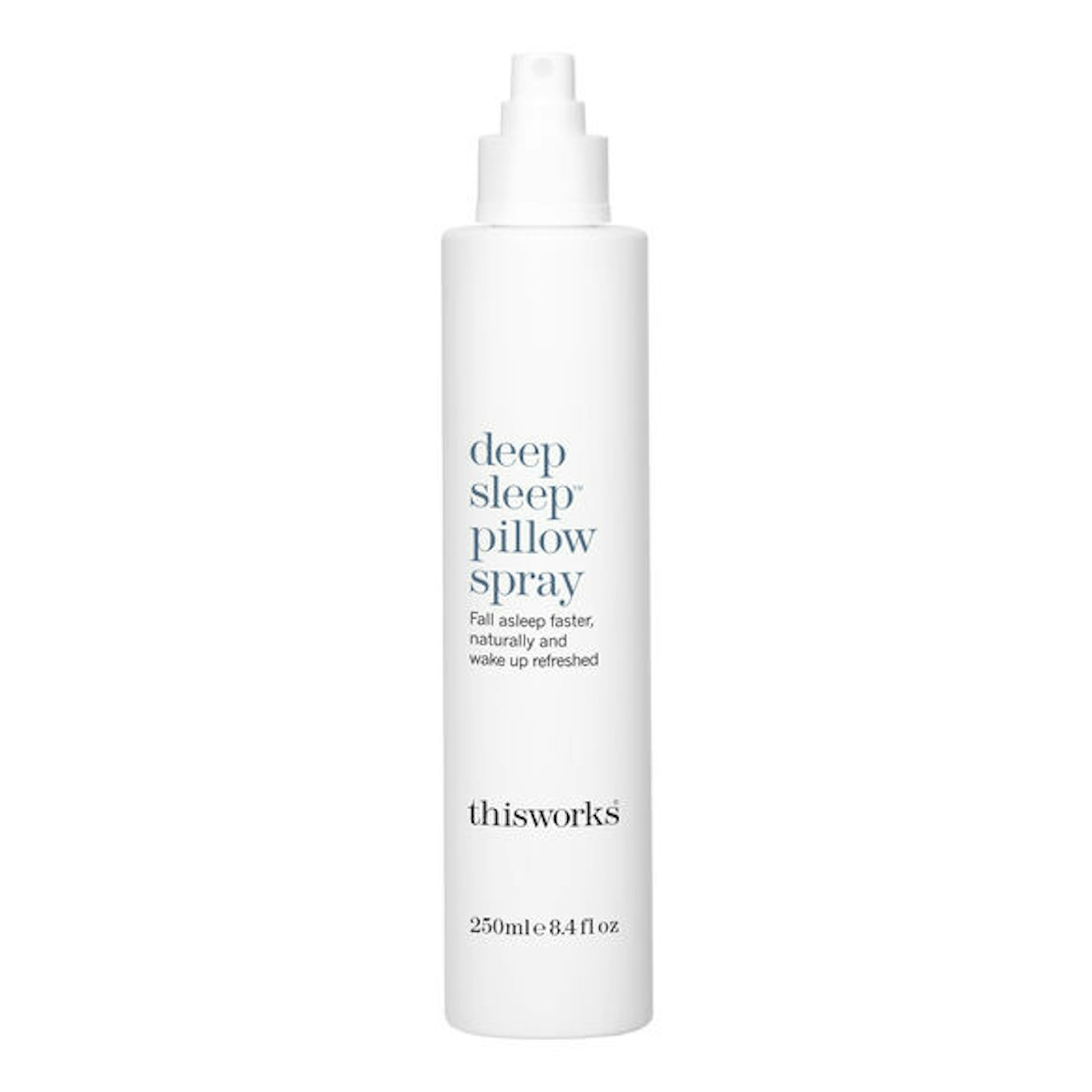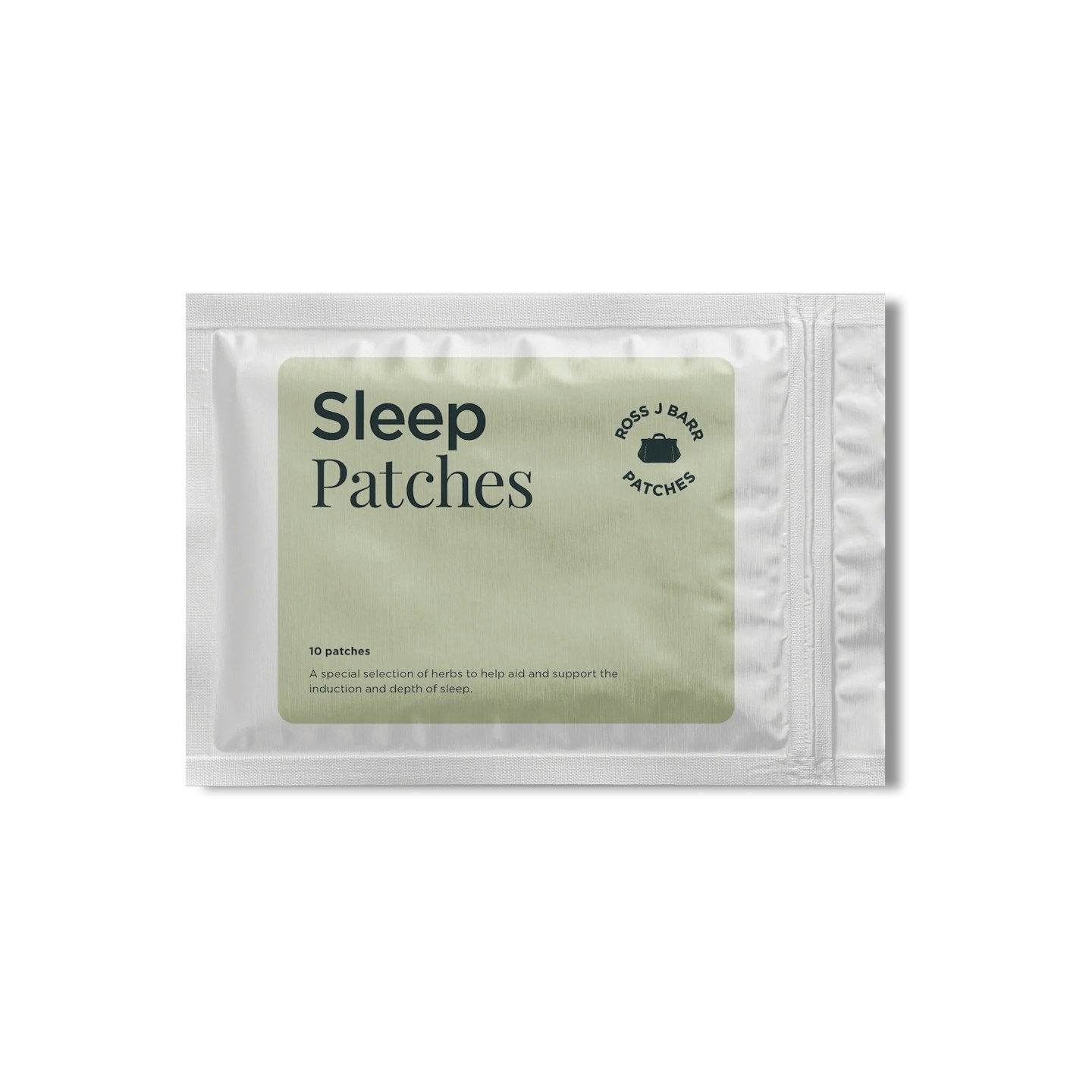The quest for perfect sleep has officially gone viral. While bragging about early bedtimes has become the new social media flex, people are going to ever-more extreme lengths to ensure a better night’s sleepand cyberspace has become the platform for indulging in our “orthosomnia” (a term coined by researchers to describe a sleep tracker wearer’s unhealthy obsession with achieving perfect sleep). But it’s not just tech we’re turning to, ‘Sleepmaxxing’ has amassed over 98.6 million views of TikTok and refers to any ‘hack’ for eliciting a better night’s sleep; think nostril expanders, mouth tape, jaw straps and ‘sleepy girl mocktails’ (a bedtime blend of cherry juice, prebiotic soda and magnesium powder, apparently).
It’s not surprising given a recent study found that the average Brit is only getting 5.9 hours of sleep per night (experts recommend at least 7-9) whilst one in four of us arestruggling with insomnia.
Dr. Patrick Flynn posted on Instagram recently, confirming what we all suspected to be true and that’s that women need considerably more sleep than men (eight to 10 hours is ideal, he says). 'Women depend on adrenals to build up their daily hormone reserves and this typically happens between 9pm and 1am, whilst 98% of men’s hormones are made in the testicles – and testicles work whether we sleep or not.' (One to screenshot and send to your partner).
Whilst the '80s ‘sleep is for wimps’ attitude has thankfully been relegated to room 101 alongside mullets and floppy disks, is obsessing about the amount of sleep we’re banking per night equally damaging? 'Sleepmaxxing is a 'sleep optimization' trend we’re seeing where people attempting to gain 'perfect sleep' will resort to extreme behaviours to try and achieve this,' says Dr Zoe Gotts PhD DClinPsy, consultant clinical psychologist at The London Sleep Centre. 'But the truth is, the more effort we put into trying to achieve optimal sleep the more counterproductive it can be as it creates more attention towards sleep and often raises anxiety.'
And there’s nothing more attention-grabbing than donning a chin strap, mouth tape and side sleeper pillow (Dazed recently questioned whether ‘the morning shed’/ ‘go to bed ugly wake up pretty’ trend was to blame for Gen Z’s apparent lack of sex lives). As Gotts notes; 'Sleep is an unconscious process and as soon as we start to focus on it too much, bringing it into our conscious awareness, it becomes problematic.'
So, what does she recommend for those of us struggling to nod off? 'Ensuring the basics are in place is important and involves minimal effort. Ensure [you have] a cool, dark and quiet sleeping environment. Give yourself enough time to wind down from the day and detach, both from work and socially. I do think that people are getting less sleep than they need and I would put this down to prioritising other areas of life and also increased stress levels generally. Stress is not a conducive state for sleep and so we often see people having shorter sleep than their usual sleep needs.'
If you’re waking during the night? Dave Asprey, author and 'longevity influencer', also known as the ‘Father Of Biohacking’, has claimed that people who specifically wake up at 3am do so due to fluctuating glucose levels: 'For most people who wake up between 3 to 5am and can’t go back to sleep, it is usually due to a crash in your blood sugar level,' says Asprey, who recommends sufferers eat ‘a small snack before bed’ consisting of either ‘raw honey, collagen, MCT oil or mix all three together (MCT oil is a supplement made up of a type of fat found in coconut oil, palm kernel oil and some dairy products that is easier to digest than other fats).
Whilst the jury is very much out on viral trends such as mouth taping (used to encourage nose breathing), capitalising on our body’s circadian rhythms in order to boost our beauty routines is something many brands are tapping into. In terms of skincare, that means using specific ingredients on your skin when it’s in repair mode and therefore most receptive to them (Estee Lauder’s Advanced Night Repair franchise supports the skin’s natural day/night rhythms, for example). Even our mouths have their own circadian rhythms, according to neuroscientist Dr. Andrew Huberman, who devoted a whole podcast to the subject of teeth. On it, he discusses how saliva production (needed to re-mineralize our teeth) slows at night which makes brushing - especially with a xylitol toothpaste - all the more important.
Shop: Our Favourite Pre-Bed Buys

John Lewis & Partners
The G.O.A.T of sleep sprays is a Grazia team favourite for good reason. Packed with natural, slumber-inducing ingredients such as lavender, chamomile and vetiver, one bottle is sold every 79 seconds globally.

www.rossbarr.com
These ingenious patches, which are applied to each temple, contain a blend of wild jujube seed, coix seed and polygala to gently coax sleep. The unique scent is hard to place but immediately induces spa-like serenity.

westlabsalts.co.uk
The only thing better than a pre-bed bath is a pre-bed bath laced with some magnesium-enriched bath salts. The mood-boosting ‘neuroscent’ composed of lavender and cedarwood will also help to soothe mind and body.

sentiaspirits.com
Think of this as your night cap without the fuzzy head or sticky mouth. Powered by hops and ‘functional botanicals’ to boost mood (not unlike feeling a bit tipsy) but without the alcohol, this is your go-to when you want to feel sociable but also want uninterrupted sleep.

www.superdrug.com
Like a goodnight hug in a mug, the restorative blend of organic berries, chamomile, valerian and echinacea had us drifting off before we even...
6.
Diome Rested

www.diome.co
With 15 Ingredients including four essential vitamins, three minerals, sever botanical extracts and Myo-Inositol, this supplement aids sleep quality, the normal functioning of your nervous system and physical and mental wellbeing.
Cassie Steer is acting beauty director at Grazia with over 25 years’ experience on women’s glossies.

